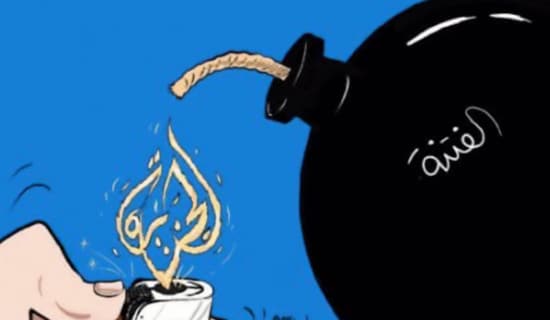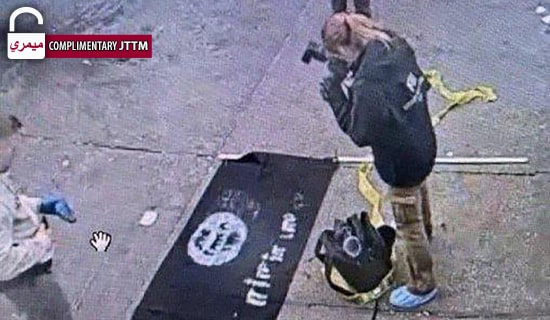In a May 23, 2011 article published by the Palestinian Authority news agency Wafa, Sabri Saidam, Palestinian Authority President Mahmoud Abbas's advisor for information technology and vocational training and Fatah Revolutionary Council deputy secretary-general, said that the marches on Israel's borders on "Nakba Day" had revealed the new "Palestinian nuclear weapon." This weapon, he said, was the brave young people loyal to their ancestral homeland who do not fear risking their lives to actualize their rights to a state, freedom, and independence – a weapon he described as more powerful than Israel's entire arsenal.
Following are excerpts from the article:[1]
"The glorious day has arrived, [the day] that some feared and others ignored, while the rest prepared themselves at the last minute. The Palestinians have begun moving their new, quality 'nuclear weapon' across the borders – while the massive arsenal of nuclear, chemical, and biological weapons, cluster and phosphorous [bombs], and the entire spectrum of WMDs rests in Israel's storage facilities, nuclear reactors, and laboratories. [The arsenal was] paralyzed by the footfall of a Palestinian youth who advanced via the border, risking his life, to reach the birthplace of his parents, grandparents, and noble Jaffa family – while his comrades encountered [live] fire at the border.
"This new Palestinian 'nuclear weapon' is based on a large nucleus of loyalty to the motherland – a nucleus of courage and of yearning, and of distress due to the occupation. Together with this is a nucleus of courage, that disregards the minefields, the barbed-wire fences, the [tear] gas grenades, the [various] types of munitions, and the [various] types of obstinacy reflected in every speech delivered so generously before humanity by the occupation government.
"The new Palestinian 'nuclear weapon' demolishes the theory [that the Palestinian refugees will] forget [their yearning for the homeland], on which the Hebrew state has relied. It destroys the possibility of intimidating the millions of Palestinian refugees. It shatters the aspirations of the generals of our time, who aim to eliminate the affiliation of the Palestinian grandchild [with the homeland] – the grandchild who is charged with yearning for the land of his forefathers, [so much so] that he is willing to gamble with his life in an attempt to attain his plundered right – his right to a state, to freedom, and to independence.
"The internal battles within the occupation army will surely be endless, after its haggard appearance was revealed on that day. Perhaps those battles will be fought in total secrecy, with a few officers removed from their posts. Perhaps [the Israeli army] will reassess its plans in order to deal with this possible new test [that has become apparent] since the Nakba Day [dress rehearsal].
"[This] article of mine contains a great [call] to those in the Occupation state [Israel] who want to see and to hear that this impulse of self-sacrifice among the new generation of Nakba grandchildren has great significance – namely, that this generation is not afraid to storm [the borders] and die, and therefore will not relinquish its right, no matter how long the fence, how extensive the settlements, or how great the plunder of the land. Thus, it will never tire, and will never agree to anything but liberation and the disappearance of the occupation.
"In light of this, the threatening speeches and the denial of rights will be to no avail. What will avail is submission to the fact that those who want to live in security must give the people back their rights, their plundered land, and their stolen lives – particularly because, as they say in English, high fences do not necessarily make good neighbors.
"Perhaps those who are listening in the Occupation state – particularly those who express solidarity with our people every week in the heroic places and villages of the separation fence – must be told today: It is your job to tell your politicians what they don't like to hear, namely that all your country's weapons, and the language of obstinacy and tyranny, will not [subdue us] – and neither will pressure on world leaders or [the attempt] to compel them to change their statements and positions... None of these actions [by Israel] will create a world that favors occupation and humiliation.
"The new Palestinian nuclear weapon is the refugees outside and inside the homeland – [who seek] a just peace but who will not turn to it until the occupation is gone – as well as others whom the occupation has made miserable, whose hopes and dreams are hobbled by the occupation, and who have been filled with the stories of the homeland [told them by their] grandmothers and grandfathers.
"Which is the more effective weapon – that of man, or that of fire?"
[1] Wafa (Palestinian Authority), May 23, 2011




